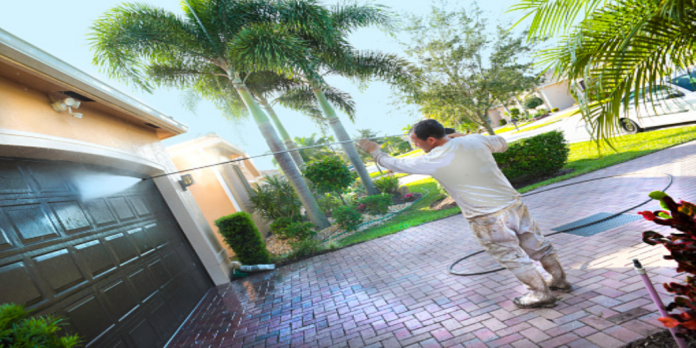Are you one of those who assume pressure washers can be used on all surfaces? Then you’re mistaken. Even with their versatility, pressure washers cannot always be used on all surfaces. This is because such surfaces may be too fragile for the amount of pressured water that uses the tool. However, certain surfaces can only be thoroughly cleaned by pressure washers, and in this article, you will get a list of four suitable surfaces for pressure washers.
4 Suitable Surfaces For Pressure Washers
Decks
Decks are the most familiar spots for algae, mold, and mildew buildup because of their limited exposure to sunlight—different decks, whether wooden, concrete, or stone, go with different pressure washers. Decks made from hardwood can withstand the pressure from pressure washers, and the same applies to pressure-treated wood if the nozzle is not applied closely. Pressure-treated woods are softwoods, so you have to be cautious of any marks or dents when using pressure washers on them. Not all decks can be pressure washed, so you need to conduct more research to know which ones are suitable for pressure washers.
Concrete paths
Concrete is a pretty strong material that can withstand almost anything, including pressure washers. Walkways and driveways constructed with concrete can be effectively cleaned using a pressure washer, even if there are stubborn grease stains on them. On the other hand, cement-covered paths need lower pressure when washing, so pressure washers are not always helpful when the wrong amount of pressure is applied.
Roofs
Pressure washing roofs require more caution as it could become dangerous. Using the tool on roofs would require a ladder which could become unbalanced when the pressure washers are in full blast. Also, the water from the tool may undo some roof parts or damage some parts of your roof. This is why you need to be careful when using pressure washers on them, or you could easily go for a pump sprayer.
Siding
Not all siding can be pressure washed; however, vinyl siding and fiber cement siding can tolerate the pressure easily because of their strength and durability. In contrast, aluminum siding can’t withstand so much pressure as it can become dented, so you should use low pressure when pressure washing and use higher pressure only on tougher stains. You can also pressure wash wood clapboard siding, but the surface must be tested first.
Never pressure wash shingle siding as the pressure could loosen the shingles. Note that when pressure washing your siding, avoid trapping water between the siding and your home covering because the moisture can foster mold. Also, try as much as possible to repair all damaged siding or replace it where necessary.
Conclusion
Pressure washers have nozzles of varying degrees from 0 to 40. The higher the degrees, the wider the spray form and the less intense the water flow gets. That means using lesser degree results in a more concentrated water spray, leading to damaged surfaces when wrongly used. Also, using it as a car washer is not advisable but tread with caution as you do so to avoid damaging paint, which could lead to rust.









